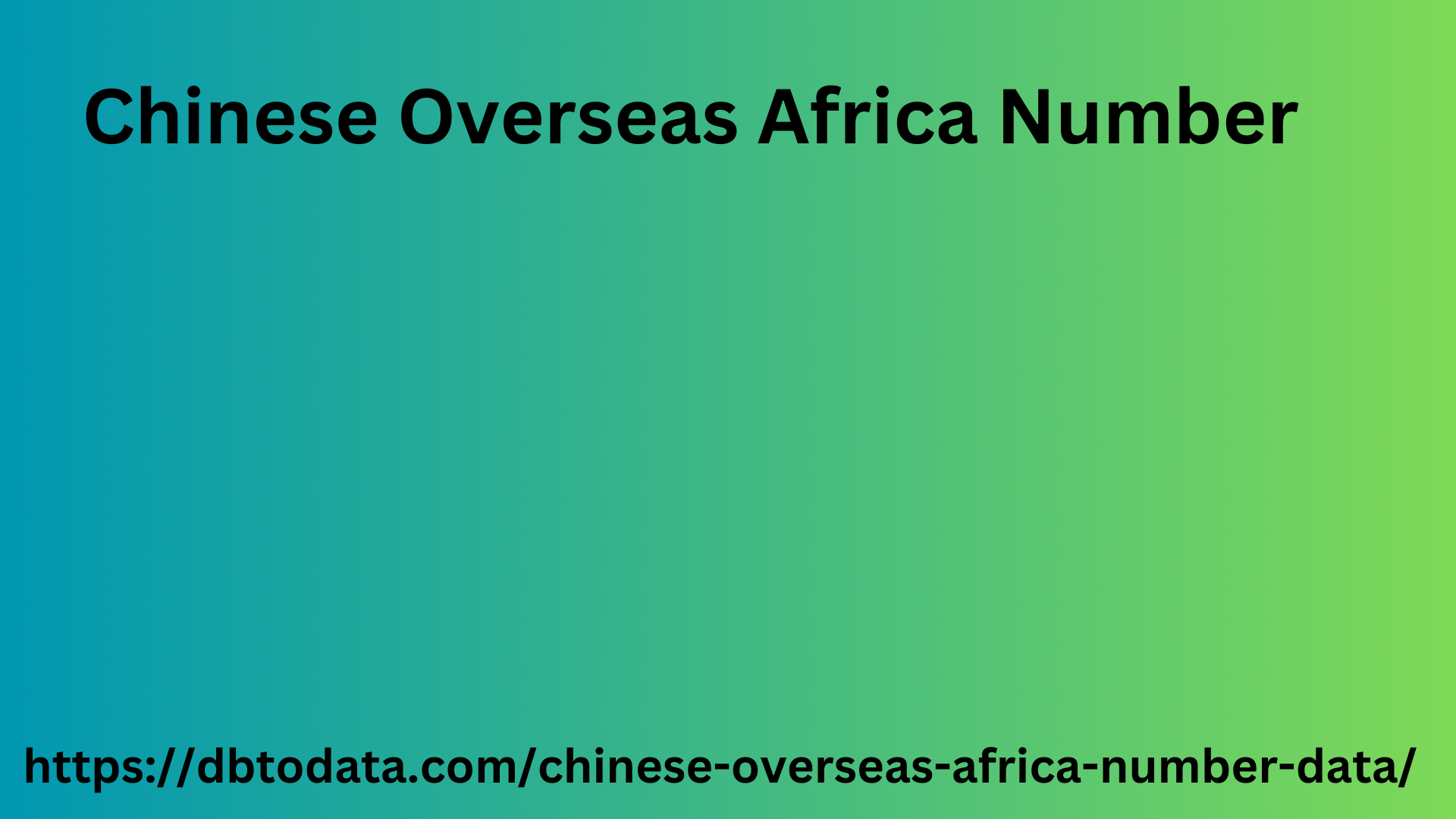|
|
European customs procedures play a critical role in the region's trade, ensuring compliance with laws, securing revenue, and protecting public safety and the environment. The European Union (EU) has a unified customs policy for member states, governed by the Union Customs Code (UCC), effective since May 1, 2016.
Union Customs Code (UCC)The UCC simplifies, harmonizes, and modernizes customs procedures across the EU. Key components include:
- Electronic Systems: All interactions between customs authorities and businesses are electronic, enhancing efficiency and reducing paper-based processes.
- Centralized Clearance: Businesses can declare goods Chinese Overseas Africa Number and pay customs duties at one central location, facilitating easier and faster processing.
- Self-Assessment: Trusted traders can manage their customs declarations and duties themselves, streamlining the process for compliant businesses.
Import and Export Procedures

- Import Procedures:
- Goods entering the EU must be declared to customs.
- The Import Control System (ICS) is used for advance cargo information.
- Customs duties, VAT, and excise duties must be paid.
- Goods undergo risk assessment for safety, security, and compliance with EU standards.
- Export Procedures:
- Goods leaving the EU must be declared to customs.
- The Export Control System (ECS) manages export declarations.
- An export declaration is lodged, and the goods may be inspected for compliance with export regulations.
Customs Tariffs and Duties- The EU applies a Common Customs Tariff (CCT) for imports from outside the EU.
- Duty rates depend on the type of goods and their origin, with preferential rates for certain countries.
- Tariffs are classified using the Harmonized System (HS) nomenclature.
Free Trade AgreementsThe EU has numerous Free Trade Agreements (FTAs) with countries worldwide, reducing or eliminating tariffs and facilitating smoother trade flows. Examples include agreements with Japan, Canada (CETA), and the UK (post-Brexit).
Challenges and Developments- Brexit: The UK's departure from the EU necessitated new customs arrangements, impacting trade flows.
- Digital Transformation: Ongoing efforts to further digitize customs processes and improve data sharing among member states.
- Trade Facilitation: Initiatives to simplify procedures and enhance cooperation with international partners, aligning with the World Trade Organization (WTO) Trade Facilitation Agreement.
The European customs framework continues to evolve, adapting to global trade dynamics and technological advancements, ensuring that it remains robust, efficient, and supportive of the single market.
|
|
